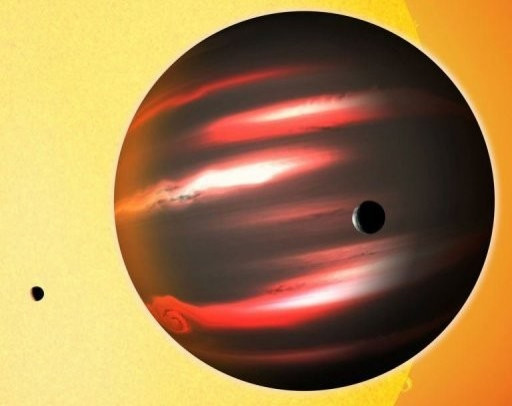Universe's Darkest Planet is Nearly Invisible
Astronomers Have Found a Planet Darker than Anything on Earth

A Jupiter sized planet 750 light years away is darker than any substance found on Earth.
Scientists have discovered that TrES-2b, which orbits a distant star, reflects only one percent of the sunlight that hits it. A satellite of the sun called GSC 03549-02811, the exoplanet is a gas giant is darker than coal and is unique to anything astronomers have seen in the universe.
The findings, found here, were published Wednesday by Ivy League astrophysicists David Kipping and David Spiegel.
"TrES-2b is considerably less reflective than black acrylic paint, so it's truly an alien world," Kipping, of the Harvard-Smithsonian Center for Astrophysics, said in a press release issued by Britain's Royal Astronomical Society.
Jupiter, which is of comparable size and consistency, reflects more than 33 percent of the sun's light back, but TrES-2b does not have the type of clouds that Jupiter does because of its high temperature.
TrES-2b, which is "only" three million miles from its star, is roughly 2,000 degrees Fahrenheit, and has an atmosphere made of light-absorbing chemicals. Earth is 93 million miles from our Sun.
"It's not clear what is responsible for making this planet so extraordinarily dark. However, it's not completely pitch black. It's so hot that it emits a faint red glow, much like a burning ember or the coils on an electric stove."
Depending on cloud cover, Earth reflects 30 to 35 percent of the sunlight that reaches it. A planet with only one percent reflection is essentially invisible.
The exoplanet was found five years ago using the Kepler spacecraft. More than 500 new planets have been discovered since 1995.
© Copyright IBTimes 2025. All rights reserved.





















